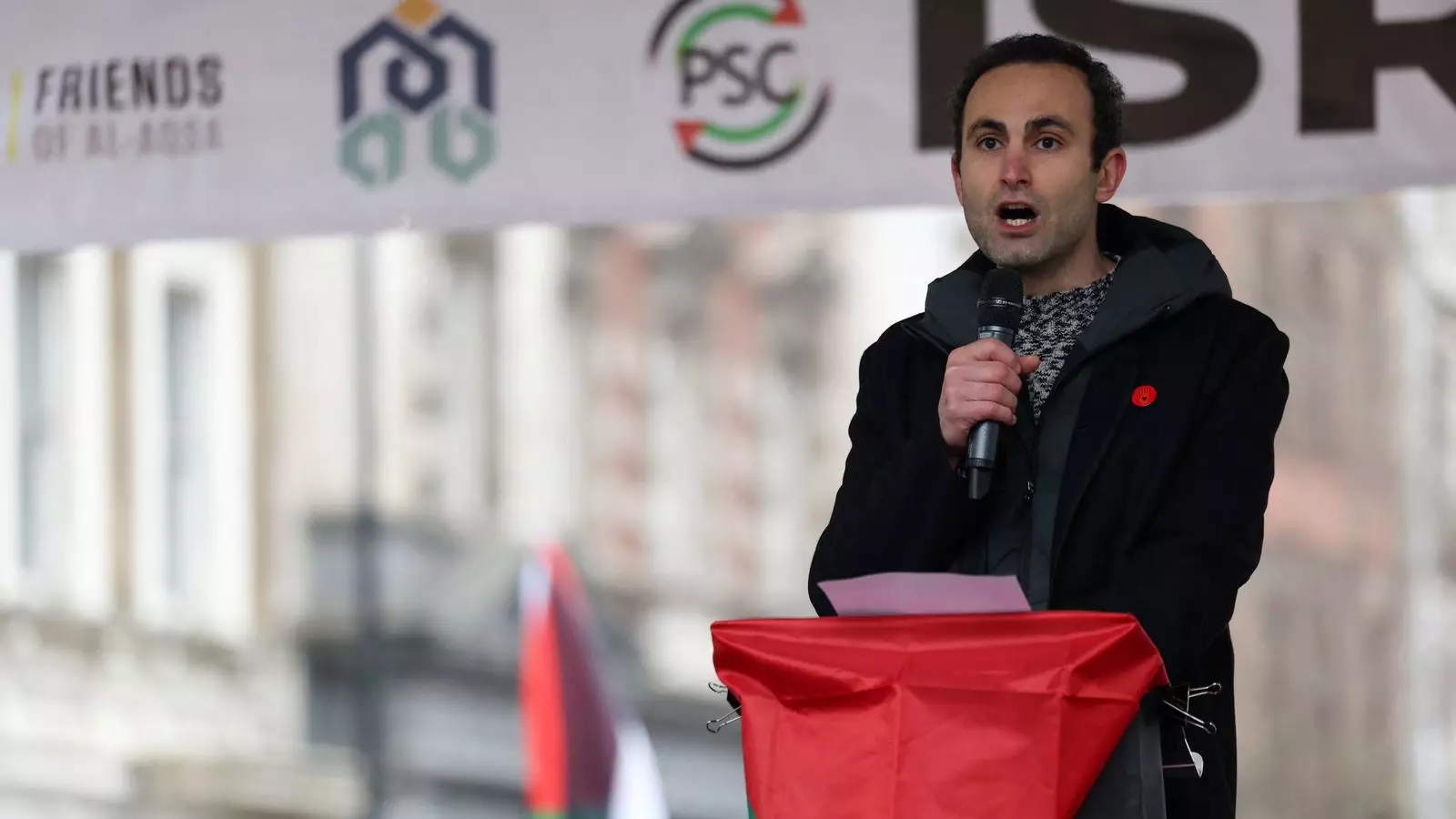The recent revelation that Khalid Abdalla, the acclaimed actor known for his portrayal of Dodi Fayed in “The Crown,” faces police questioning related to a pro-Palestinian protest is more than an isolated incident; it is a reflection of a broader, alarming trend in the United Kingdom. The police’s decision to summon individuals, including an 87-year-old Holocaust survivor, for questioning under the guise of maintaining public order raises significant ethical concerns. What does it say about our society when the act of peacefully protesting is treated as a potential criminal offense? This isn’t merely about a protest gone wrong; it’s about the chilling effect that state surveillance can have on civil liberties.
The essence of democracy lies in its commitment to allowing dissent. It is troubling to see figures like Abdalla pointing out that the right to protest is under siege, which indicates a profound misunderstanding of what it means to live in a free society. The protest in question, organized by the Palestine Solidarity Campaign on January 18, was aimed at raising awareness for a humanitarian crisis. Instead of engaging with protestors’ concerns, the police have resorted to punitive measures that intimidate citizens into silence. Such actions could potentially deter many from exercising their right to free assembly—an invaluable component of a vibrant democracy.
Adding insult to injury is the police’s version of events, which presents a narrative where demonstrators allegedly breached police lines. This account has been categorically disputed by Jeremy Corbyn, who claims to have merely attended to lay flowers and deliver a speech. The divergent viewpoints underscore a critical issue: who gets to control the narrative? In an age where social media can amplify voices and mobilize crowds quickly, police accounts often appear as if they are attempting to maintain an artificially constructed reality. This begs the question—are we genuinely securing public order, or are we shutting down dissenting voices in the guise of law enforcement?
The presence of an elderly Holocaust survivor at the protest emphasizes the intersectionality that characterizes modern movements for social justice. This individual has lived through historical atrocities and stands with those fighting for Palestinian rights. Disregarding his presence and summoning him for questioning not only disrespects his lived experience but also overlooks the fact that various marginalized communities often find solidarity in shared struggles against oppression. Thus, the disproportionate responses from law enforcement can only be viewed as an affront to human rights, a troubling indictment of a justice system that should, in theory, work for the people.
Khalid Abdalla is not simply a bystander; his willingness to advocate for causes he believes in amplifies the voices of the voiceless. In a time when celebrity influence could sway public opinion, it becomes crucial for them to stand firm in defense of human rights. Abdalla’s posts calling for Western nations to cease military aid to Israel indicate an alignment with broader calls for justice—a sentiment that resonates with many as they look for substantive change in international policies. The consequences these public figures face for exercising their right to free speech only serve to display the high price of activism today.
Witnessing public figures like Abdalla being targeted for their activism sends a stark warning to younger generations. The youth often take cues from role models, and when state machinery begins to push back against dissent, it creates a culture of fear. The courage demonstrated by seasoned activists is at risk of being overshadowed by the looming threat of police intervention, which in turn may deter young advocates from stepping into the limelight. As we witness this alarming shift, we must question if we are cultivating an environment conducive to advocacy or one that fosters compliance.
This situation encapsulates a series of interconnected issues that deserve our urgent attention. As the UK grapples with the implications of policing protests, it remains critical that we safeguard the democratic principles that allow for a more equitable society. Each letter sent to activists and each police interview scheduled amounts to a chilling reminder of the delicate balance between maintaining order and respecting fundamental rights.

Leave a Reply